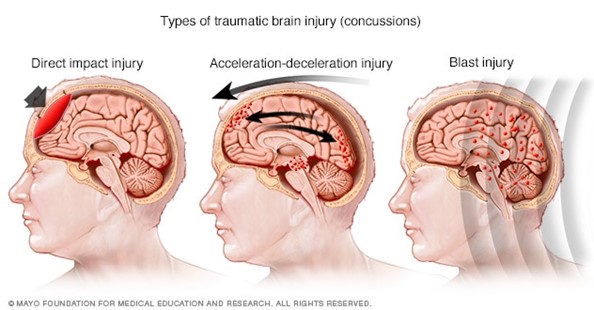Recovery from a clinical standpoint is different from recovery from a physiologic standpoint. The clinical time for recovery is when your symptoms subside. The physiologic time for recovery is when your brain recovers metabolically. Unfortunately, these two things do NOT coincide, making concussion difficult to manage – particularly with athletes.
Typically, initial concussion symptoms last for a period of 7-to-10-days. Once these symptoms have abated, an athlete may think they are “all better.” And their coach or therapist may sign off and send them back out onto the field or ice.
But a concussion is a functional injury, meaning brain function has been altered. There is no golden test (imaging, blood, saliva or otherwise) that enables healthcare professionals to determine if you have fully recovered from your concussion. As such, functional testing is currently the best means for concussion management teams to help build a clinical picture and ascertain when it is safe for an athlete to go back to sport.
Persistent Concussion Symptoms
Persistent Concussion Symptoms, previously known as Post-Concussion Syndrome (PCS), occur when concussion symptoms persist beyond the expected recovery period after the initial injury. We mentioned that symptoms typically subside within a 7-to-10-day timeframe, however sometimes they can linger. What studies are now showing is that the sooner you get treatment for your concussion after the initial injury, the less likely you will be to experience persistent concussion symptoms or a prolonged recovery. The fact is, when not addressed PCS can last for weeks, months and even years.
With a concussion there is no visible injury to the structure of the brain, meaning that tests like MRI or CT scans usually appear normal. To further understand what a concussion is, watch this video for an in-depth whiteboard demonstration:
Concussion Testing & Rehabilitation:
Dr. Phil will educate you on the management of concussion, provide an objective clinical evaluation, provide sound evidence-based treatment practices, and have a treatment plan for return to play or return to daily activities.
Concussions are not something to be afraid of or an injury to hide. 15-20% of individuals experience post-concussion syndrome for months post-injury simply due to not receiving EARLY proper treatment and diagnosis of the injury that has occurred.
At Forward Health we offer accessible and timely care to support those impacted by concussions . We pride ourselves on delivering best evidence practices combatting concussions as well as many other injuries. Misinformation on the part of healthcare providers is often the factor that delays recovery the most.
Dr Phil will provide you with the most recent education on concussion so you can heal correctly, and rest assured that you will not have permanent symptoms.
We get you back to work, sport, and fitness using vestibular-ocular therapy, exercise guidance/prescription, and cervical spine (neck) rehabilitation to aid in the recovery of your concussion.
Call us at 519-766-3940 or come in to visit our clinic located at 1030 Gordon Street, Suite 101 in Guelph, Ontario, to book your initial assessment with Dr. Phil McAllister (Certified as A Concussion Management Specialist, through Complete Concussion Management.)


